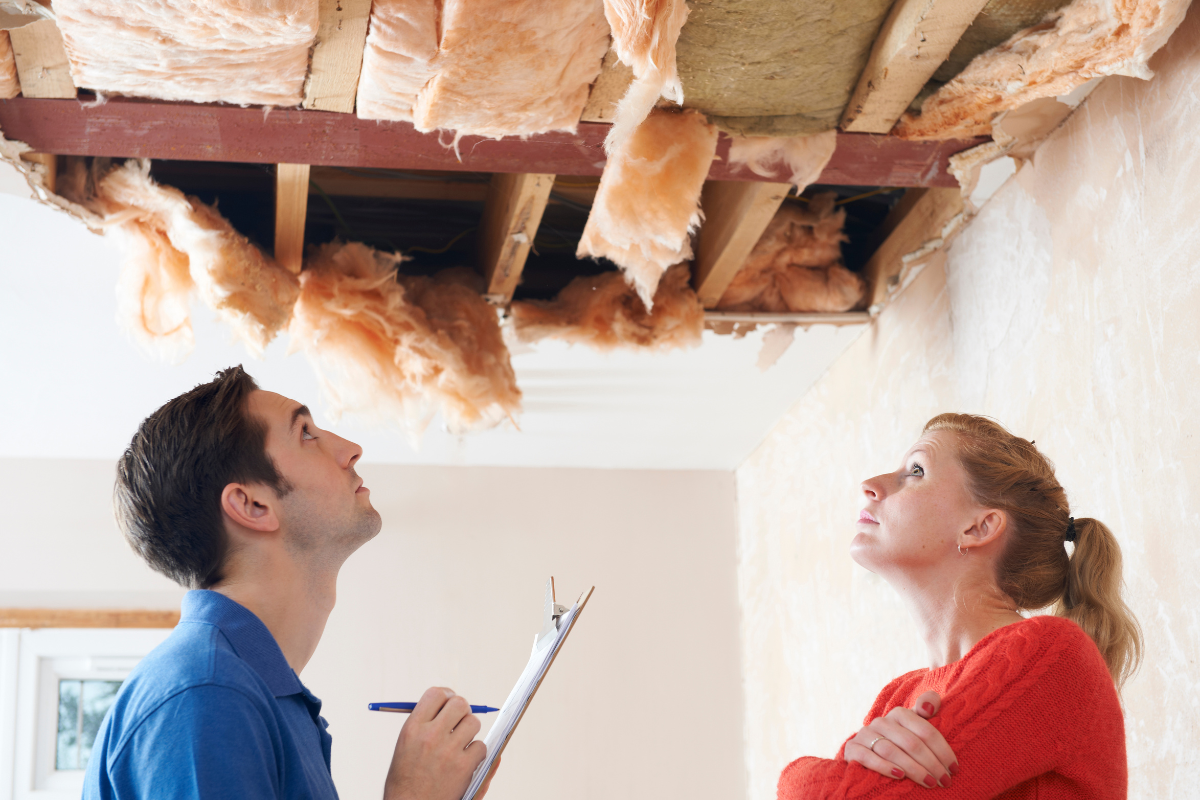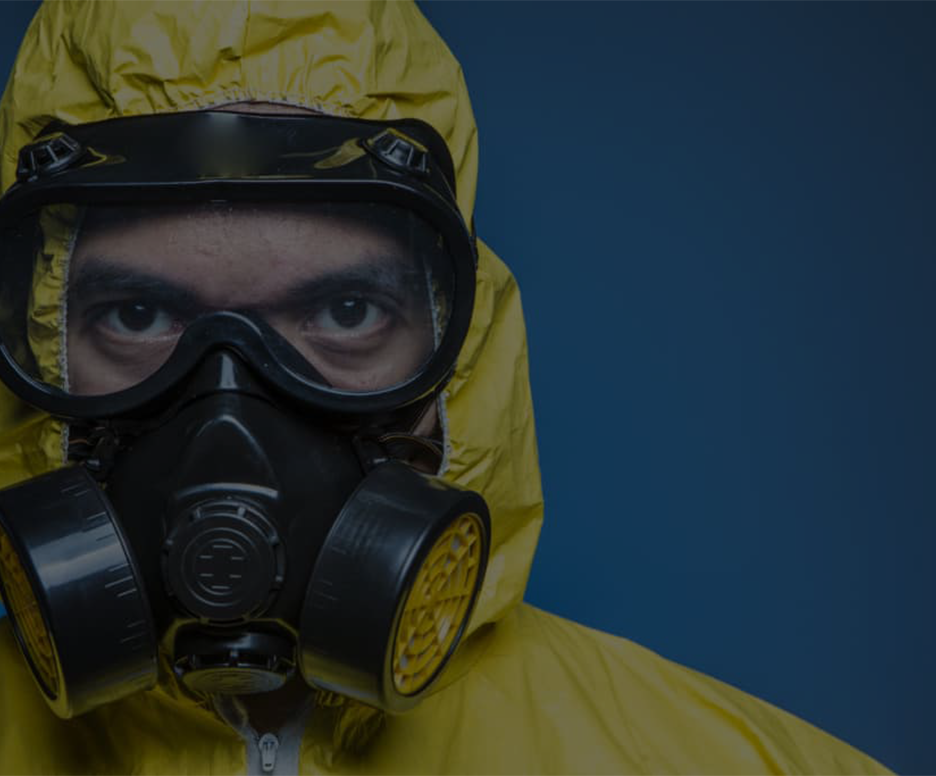
Dealing With Water Damage: DIY vs Professional Help
By: 911 Water Damage Experts
Water damage can wreak havoc on your property, causing structural issues, mold growth, and significant financial losses.
When faced with water damage, homeowners are often confronted with the decision of whether to tackle the restoration process themselves or seek professional assistance.
In this article, we explore the advantages and disadvantages of DIY water damage restoration versus hiring professional help.
Let’s get right into it!
DIY Water Damage Restoration
Advantages
1. Cost Savings
One of the primary reasons homeowners opt for DIY water damage restoration is to save money. By handling the cleanup and repair process themselves, they can avoid the expenses associated with hiring professional restoration services.
2. Immediate Action
When dealing with water damage, every moment counts. DIY restoration allows homeowners to take immediate action without waiting for professional assistance, potentially minimizing the extent of the damage.
3. Control Over Process
DIY enthusiasts may prefer to handle water damage restoration themselves to maintain control over the entire process. They can customize the approach based on their preferences and schedule, ensuring that the restoration is carried out according to their standards.
4. Learning Experience
Dealing with water damage firsthand can provide valuable learning experiences for homeowners. They gain insights into mitigation techniques, drying methods, and preventive measures, empowering them to better protect their property in the future.
5. Flexibility
DIY restoration offers flexibility in terms of timing and approach. Homeowners can work on the restoration project at their own pace, accommodating their schedule and priorities.
Disadvantages
1. Limited Expertise
DIY restoration may lack the expertise and specialized equipment required to effectively address water damage. Without proper knowledge and experience, homeowners risk overlooking hidden moisture pockets, leading to mold growth and structural issues.
2. Time-Consuming
Water damage restoration is a time-sensitive process that requires thorough attention to detail. DIY efforts can be time-consuming, especially for homeowners with limited experience or resources, delaying the restoration process and exacerbating the damage.
3. Incomplete Restoration
Inadequate restoration efforts may result in incomplete drying and sanitation, leaving behind moisture that can promote mold growth and compromise indoor air quality. DIY enthusiasts may struggle to achieve the same level of thoroughness as professional restoration companies.
4. Safety Risks
Water damage restoration involves exposure to potentially contaminated water, electrical hazards, and structural instability. DIY attempts without proper safety precautions can pose risks to the health and safety of homeowners and occupants.
5. Potential for Costly Mistakes
DIY restoration mistakes can lead to costly consequences, including further damage to the property and the need for extensive repairs. Without professional guidance, homeowners may inadvertently worsen the situation and incur additional expenses.
Professional Water Damage Restoration
Advantages
1. Expertise and Experience
Professional restoration companies have the expertise, training, and experience to handle water damage effectively. They employ certified technicians who are knowledgeable in industry best practices and utilize advanced equipment for thorough restoration.
2. Efficient Process
Professional restoration services follow a systematic approach to water damage mitigation and restoration, ensuring swift and efficient completion of the project. Their streamlined processes minimize downtime and reduce the risk of secondary damage.
3. Comprehensive Restoration
Professional restoration companies offer comprehensive services that encompass water extraction, drying, dehumidification, mold remediation, and structural repairs. They address all aspects of water damage restoration to restore the property to its pre-loss condition.
4. Advanced Equipment
Professional restoration companies invest in state-of-the-art equipment and technology for optimal results. Industrial-grade pumps, dehumidifiers, air movers, and moisture meters are used to expedite the drying process and ensure thorough moisture removal.
5. Insurance Assistance
Professional restoration companies often work directly with insurance providers to streamline the claims process for homeowners. They provide detailed documentation, estimates, and documentation to support insurance claims and facilitate timely reimbursement.
Disadvantages
1. Cost
Professional water damage restoration services can be costly, especially for extensive damage requiring extensive repairs and mold remediation. However, the investment may outweigh the potential long-term expenses associated with incomplete DIY restoration.
2. Dependency on Schedule
Homeowners may need to coordinate with the schedule of professional restoration companies, which could result in delays, particularly during peak demand periods following natural disasters or severe weather events.
3. Loss of Control
Some homeowners may feel a loss of control over the restoration process when hiring professionals. While reputable restoration companies prioritize client communication and involvement, homeowners may still prefer to oversee the restoration personally.
4. Reliance on Third Party
Entrusting the restoration of your property to a professional company entails reliance on their expertise and reputation. Choosing a reputable and trustworthy restoration provider is essential to ensure satisfactory results and customer satisfaction.
5. Potential for Disruption
Water damage restoration projects may disrupt daily routines and occupancy of the property, particularly during the initial stages of water extraction and drying. Homeowners should be prepared for temporary inconvenience during the restoration process.
FAQs
1. What should I do immediately after discovering water damage?
Turn off the water source if possible and contact a professional restoration company for immediate assistance.
2. Is it safe to enter a water-damaged area?
Avoid entering flooded or water-damaged areas until safety hazards such as electrical risks and structural instability have been addressed.
3. How soon should water damage be addressed to prevent mold growth?
Water damage should be addressed within 24 to 48 hours to prevent mold growth and minimize further damage.
4. Can I remove water and dry the affected area myself?
DIY water damage restoration may be feasible for minor incidents, but professional assistance is recommended for extensive or contaminated damage.
5. Will my insurance cover water damage restoration?
Coverage for water damage restoration varies depending on your insurance policy and the cause of the damage. Consult your insurance provider for specific details.
6. How long does the water damage restoration process take?
The duration of the restoration process depends on the extent of the damage, the category of water involved, and other factors. Professional restoration companies can provide estimates based on the specific circumstances.
7. What techniques are used for water extraction and drying?
Professional restoration companies utilize advanced equipment such as industrial pumps, dehumidifiers, and air movers to extract water and facilitate thorough drying of affected areas.
8. Will water damage restoration remove mold?
Water damage restoration includes steps to mitigate mold growth, such as drying affected areas promptly and applying antimicrobial treatments. However, extensive mold infestations may require additional remediation efforts.
9. How can I prevent future water damage emergencies?
Regular maintenance of plumbing systems, appliances, and structural components, prompt repair of leaks, cracks, and drainage issues, and installation of flood barriers and backup systems can help prevent water damage emergencies.
10. Can I stay in my home during the water damage restoration process?
Depending on the extent of the damage and safety considerations, occupants may need to temporarily relocate during the restoration process. Restoration professionals can advise on the best course of action.
In summary, the decision between DIY water damage restoration and professional help depends on various factors, including the extent of the damage, expertise, resources, and preferences of the homeowner.
While DIY efforts may offer cost savings and immediate action, professional restoration services provide expertise, efficiency, and comprehensive restoration. By understanding the advantages, disadvantages, and frequently asked questions about water damage restoration, homeowners can make informed decisions to safeguard their property and mitigate the impacts of water damage effectively.
If you have any questions about our article, “Dealing With Water Damage: DIY vs Professional Help” or need water damage services call 1-833-WE-DRY-IT or chat with us on social media or LiveChat.
Related Posts
Fire Damage Restoration Articles
The Dos And Don’ts Of Commercial Fire Damage
Forest Fire House Damage: What To Do After Your House Is Damaged By A Forest Fire And Who to Call?
Fire prevention tips for the summer
How to clean up after a house fire
Fire damage restoration checklist
Fire damage tips: 6 hazards property owners miss
How smoke from fires can negatively affect your health
What are the most common causes of house fires?
10 helpful smoke damage cleaning tips
Mould Removal Restoration Articles
Is Bathroom Mould Dangerous? Powerful Mould Prevention Tips Inside
Dangers Of Bathroom Mould And Tips On How To Clean And Prevent It
Got Bathroom Mould? Here Are Some Must-Know Bathroom Mould Cleaning Tips
5 Signs You Have Mould Growing In Your Walls
“Can I Remove Mould Myself?” Our Mould Removal Experts Have Answers
7 Must-Know Reasons Why You Should Get A Mould Inspection Before Buying A House
Does Mould Attract Bugs? Yes And Here’s What Kind And Why
How To Remove Mould From The Attic [Mould Prevention Tips Inside]
How Rain Causes Mould Growth-Prevention Tips Included
Must-Know Tips: How To Remove Mould In Your Basement
Water Damage Restoration Articles
How to prevent home storm damage
What you can expect from a fire damage restoration company
Water damage prevention tips from the most common problems we’ve seen
Top causes of water damage in commercial buildings and how to find them
Must-know water damage tips: What to do after your house floods
What does good water damage restoration look like?
DIY water damage restoration and the hidden dangers
How to choose the right water damage company
Flast floods: What to do before, during and after a flash flood
What to do when your attic leaks?
This is why water damage is a silent home killer
Related Water Damage Services
Fire damage restoration services
Water damage restoration services
Emergency cleanup services
Mould removal services
Weather damage services

